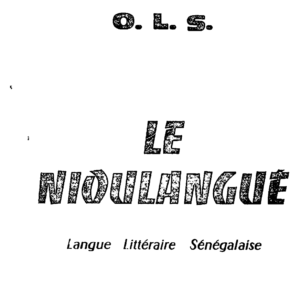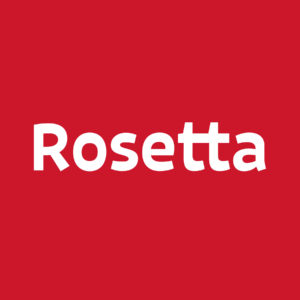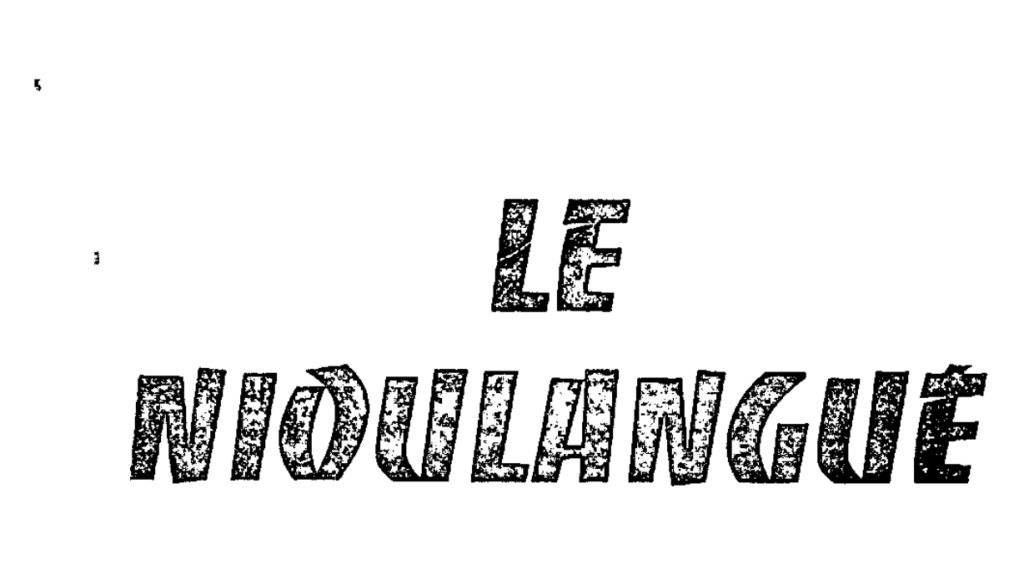The Lost Alphabets of A and N.

This is a facsimile of the title page of a book, but you can think of it also as being like the map in a tale of lost cities, not so much the Lost City of Z as the Lost Alphabet of N.
Initially noticed by Marcia Tiede, a librarian at Northwestern, and forwarded to me by Chuck Riley, Africanist and indefatigable librarian at Yale, the book seems to date from the mid-1980s and is by one Seybatou Mbengue: Ñuulange : écriture sénégalaise des langues nationales. In other words, the book is about a script he had invented.
This Senegalese script, called Ñuulange or Nioulangué, seems to have been entirely forgotten, and the only reference to it (from what my librarian friends, dashing around in the jungle of the Internet, have found so far) is in Battestini, Simon. Écriture et texte : contribution africaine. Québec : Les Presses de l’Université Laval ; Paris : Présence africaine, 1997. I’ll quote it in the original, and let you use Google Translate if you don’t know French:
“Mbengue (s.d.) créa le nuulange, écriture sénégalaise des langues nationales, publié à son compte par une institution créée par lui et dont il a été longtemps le seule membre (Office des lettres sénégalaises). L’intérêt de ce type d’entreprise est de montrer l’insatisfaction des Africains qui doivent, contre leur volonté, utiliser un script issu de l’alphabet latin. Cette écriture, alphabétique et syllabique à la fois, est une entreprise solitaire qui ne semble pas avoir eu de lendemain. En trente pages, cet « alphabet-syllabaire » vise à enseigner une écriture nationale alors que les Sénégalais musulmans utilisent deux alphabets (latin et arabe). Le Sénégal a maintenant harmonisé les scripts pour toutes les langues que l’on y parle. Paru avant la décision officielle, le travail de Mbengue montre que le pouvoir et les linguistes ont répondu à un besoin populaire. Aujourd’hui, le nuulange est voué à l’oubli.”
A tragic last sentence–and yet this snippet is only a teaser, because Battestini also refers to another lost alphabet, apparently created by a Saint Lucian and member of the African diaspora named Paul Barton.
In an English edition of his book Battestini goes on, referring to the fascinating habit of African script authors of trying to create scripts for not just one African language but for all African languages:
“The most original and ambitious global enterprise was Barton’s (1991), who invented Afrikuanda. This system aspires to be universal, but it aimed primarily at writing all the languages spoken in Africa and the African Diaspora. Invented by a young Saint Lucian, it stands out through its (justifiable) complexity. Barton started from the premises that no present system could survive because the languages it would have to come to serve would be too numerous and different. The graphs of the proposed system represent the position of the organs of phonation for each sound, consonant plus vowel, or consonant modified by a diacritical vowel sound. The script is there alphabetical, one sign for one sound, but it may also be syllabic, one complex sign for a syllable. In addition, it offers the precious and original advantage of being able to note tonal languages. It can serve for deaf-mutes…. Alas the drawbacks of Barton’s script are numerous and major. It ignores the principle of economy, has no cursive or capitals, assumes that each writer can analyze his phonation, that all speakers of all languages phonate exactly in the same way …, and that all languages distinguish /l/ from /r/. [etc.]”
Barton apparently wrote a book about his system: Barton, P. A. 1991. Afrikuanda, the African hieroglyphic writing system. New York : Vantage Press. Yet once again, the account of the alphabet is almost as lost as the alphabet itself, and this sole text survives like the map in the hand of a librarian-explorer.
There has to be a movie in this.
Needless to say, if any of you know anything about any of this, even if only a rumor overheard in a bazaar, please let us know.
This post is sponsored by our friends at Typotheque, Rosetta, and Solidarity of Unbridled Labour.




